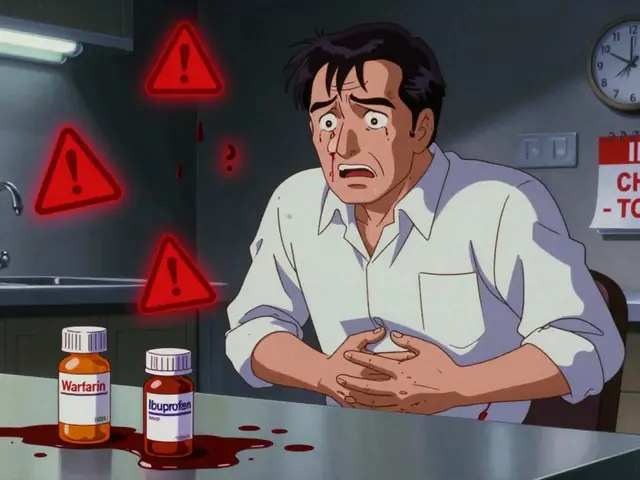Graves' disease: what to watch for and what to do
If your heart races for no reason, you’re losing weight without trying, or your eyes look different, Graves' disease might be the cause. It’s an autoimmune condition that makes your thyroid overactive. That extra thyroid hormone speeds up your body — and can make daily life feel out of control. This page gives clear, practical steps so you know what to ask your doctor and how to stay safer while getting treatment.
How Graves' disease shows up
Symptoms can come on fast or slowly. Common signs: a fast or irregular heartbeat, weight loss despite normal eating, shaking hands, feeling hot or sweaty, trouble sleeping, and fatigue. Many people notice bulging eyes, redness, or a gritty feeling — that’s thyroid eye disease. Some also get a swollen neck from an enlarged thyroid (goiter). If you have anxiety, hair thinning, or sudden changes in menstrual cycle, mention it — these fit the pattern too.
How doctors diagnose Graves' disease
Your doctor will start with blood tests. Look for low TSH and high free T4 or T3. An antibody test (TSI or TRAb) can point to Graves' specifically. If results are unclear, imaging like a thyroid ultrasound or a radioactive iodine uptake scan helps reveal how active the gland is. If your eyes are bothering you, an eye doctor (ophthalmologist) should check for inflammation, eye movement issues, and vision problems. Bring a list of symptoms, medications, and recent health changes to every visit — it speeds up diagnosis.
Treatment options and everyday care
Treatment aims to bring thyroid levels back to normal and protect the eyes. Common options: antithyroid drugs (methimazole or propylthiouracil), radioactive iodine to shrink the gland, or surgery to remove part of the thyroid. Beta blockers like propranolol help control fast heartbeat and tremors while other treatments take effect. Which choice is best depends on age, pregnancy plans, how severe the disease is, and whether your eyes are involved.
For thyroid eye disease, treatments vary from lubricating eye drops and steroids to radiation or surgery in severe cases. Smoking makes eye problems worse — quitting helps. Watch for warning signs: sudden severe eye pain, double vision, or loss of vision need urgent care. Also seek emergency help for very high fever, a fast heartbeat with confusion, or extreme weakness — these can be signs of thyroid storm.
Simple daily steps help too: get regular blood tests to track treatment, don’t stop medications on your own, and tell any new doctor you have Graves'. If you’re pregnant or planning pregnancy, discuss safe medication choices with an endocrinologist. Join a support group or ask your clinic for patient resources — living with Graves' gets easier with a plan and good follow-up.





